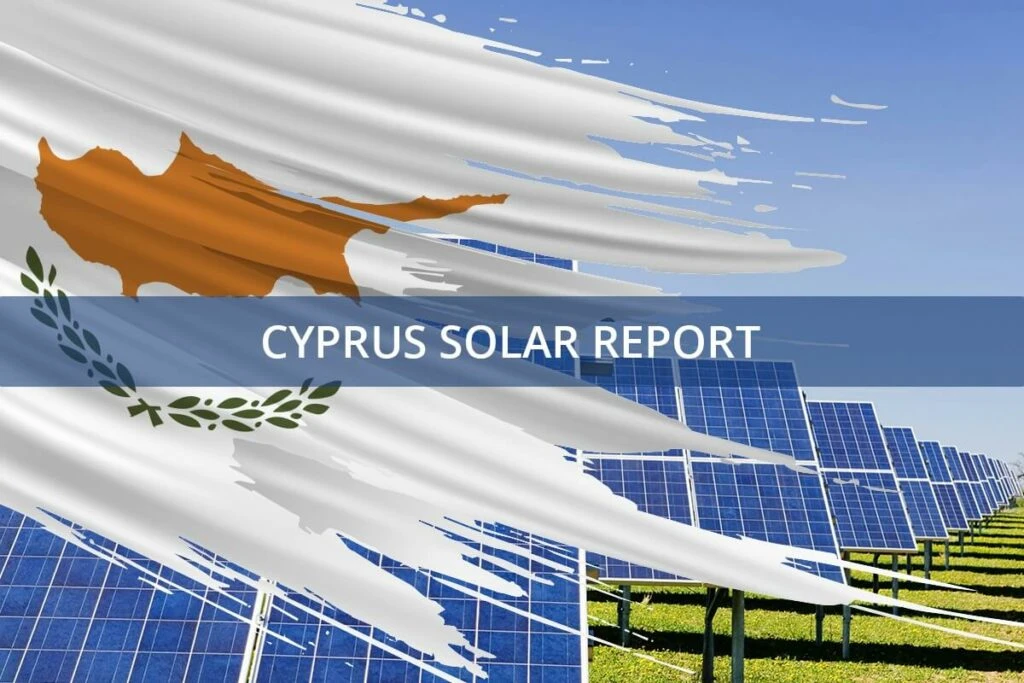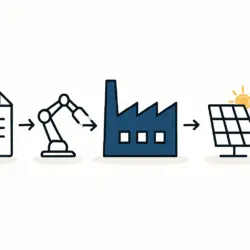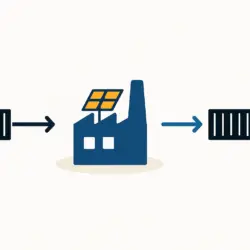Cyprus is at a crossroads, navigating the delicate balance between its ambitious renewable energy goals and the critical need to preserve its natural and agricultural heritage. The island nation is considering new legislation to prevent solar park installations on protected agricultural land, a move that addresses mounting environmental concerns and signals a major refinement of its green energy strategy.
Environmental Concerns and Policy Adjustments Regarding the Cyprus solar park bill
The Republic of Cyprus is preparing to adjust its energy policies in response to growing public concern over the environmental impact of large-scale solar projects. The Akel party has tabled a bill aimed at curbing the expansion of commercial solar parks on protected and arable land, seeking to safeguard vital agricultural areas, biodiversity, and long-term food security.
Agriculture Minister Maria Panayiotou (previously Petsa) told the Phileleftheros newspaper that the government plans to propose a bill that will block future solar park projects on land designated as protected. The bill would also cancel any pending applications for solar parks in these sensitive zones. Under the new regulations, developers will be required to provide more detailed and rigorous environmental impact studies, including comprehensive assessments of water resources, soil quality, and local biodiversity.
The government aims to directly address public concerns that the green transition should not lead to unintended consequences. Minister Panayiotou emphasized that while promoting renewable energy is essential for Cyprus’s future, it must not come at the cost of irreparable environmental damage to the island’s valuable farmland and unique ecosystems.
Current State of Solar Energy in Cyprus and the Cyprus solar park bill
Cyprus has been aggressively expanding its solar energy capacity, with a significant portion of its electricity now coming from solar parks. This rapid growth, while beneficial for reducing carbon emissions, has intensified the debate over land use. The construction of these facilities is a complex undertaking, starting with the basics of solar panel manufacturing and scaling up to massive installations.
Despite the proposed legislative changes, Cyprus remains an attractive market for solar investment. For instance, the Cairo-based firm KarmSolar recently announced its expansion into Cyprus, planning to develop its first solar plant on the island. This move highlights continued international confidence in the Cypriot market and showcases how other nations are advancing their own solar industries, as seen in the Egypt Solar Panel Manufacturing | Market Insights Report.
The proposed changes will undoubtedly make it more difficult for developers to secure permits in agricultural areas. They will need to provide detailed assessments of the environmental impact and demonstrate clear, effective strategies to mitigate any negative effects. Cyprus aims to increase the share of renewable energy in its energy mix from the current 15% to 23% by 2030, with solar energy expected to play a key role. The government is developing a new energy strategy that will include a revised renewable energy action plan to align with these new environmental priorities.
The island’s potential remains immense. According to the Cyprus Institute, the country receives an average of 2,700 hours of sunshine per year, making it one of the sunniest locations in Europe and an ideal candidate to become a leader in solar energy generation.
Impact on Renewable Energy Goals and the Cyprus solar park bill
The government’s decision to protect agricultural land has been welcomed by environmental groups, who have long argued that renewable energy projects must not compromise biodiversity and natural resources. They advocate for a more holistic approach that prioritizes dual-use land strategies or locates solar parks on less ecologically valuable land.
However, developers caution that stricter regulations could slow the growth of the solar energy sector and complicate efforts to meet Cyprus’s renewable energy targets. They argue that a careful balance must be struck between environmental protection and the urgent need for clean energy to combat climate change and reduce fossil fuel dependency. The debate underscores the complexities of the energy transition, where every decision involves trade-offs between different sustainability goals.
To diversify its energy portfolio, the government is also exploring other options, such as offshore wind farms and advanced energy storage solutions. These projects could help Cyprus create a more resilient and varied energy mix while easing the pressure on its land resources.
As Cyprus moves forward, the government faces the challenge of carefully balancing environmental stewardship with its clean energy ambitions. The proposed changes to solar park regulations are a significant step toward a more sustainable and responsible energy transition. However, continued dialogue and innovative solutions will be crucial to ensure Cyprus can achieve its renewable energy targets without sacrificing the environment that makes it unique.
If you are interested in the technical aspects behind this energy revolution, from sourcing solar panel raw materials to the final assembly, consider deepening your knowledge with our free e-course.



